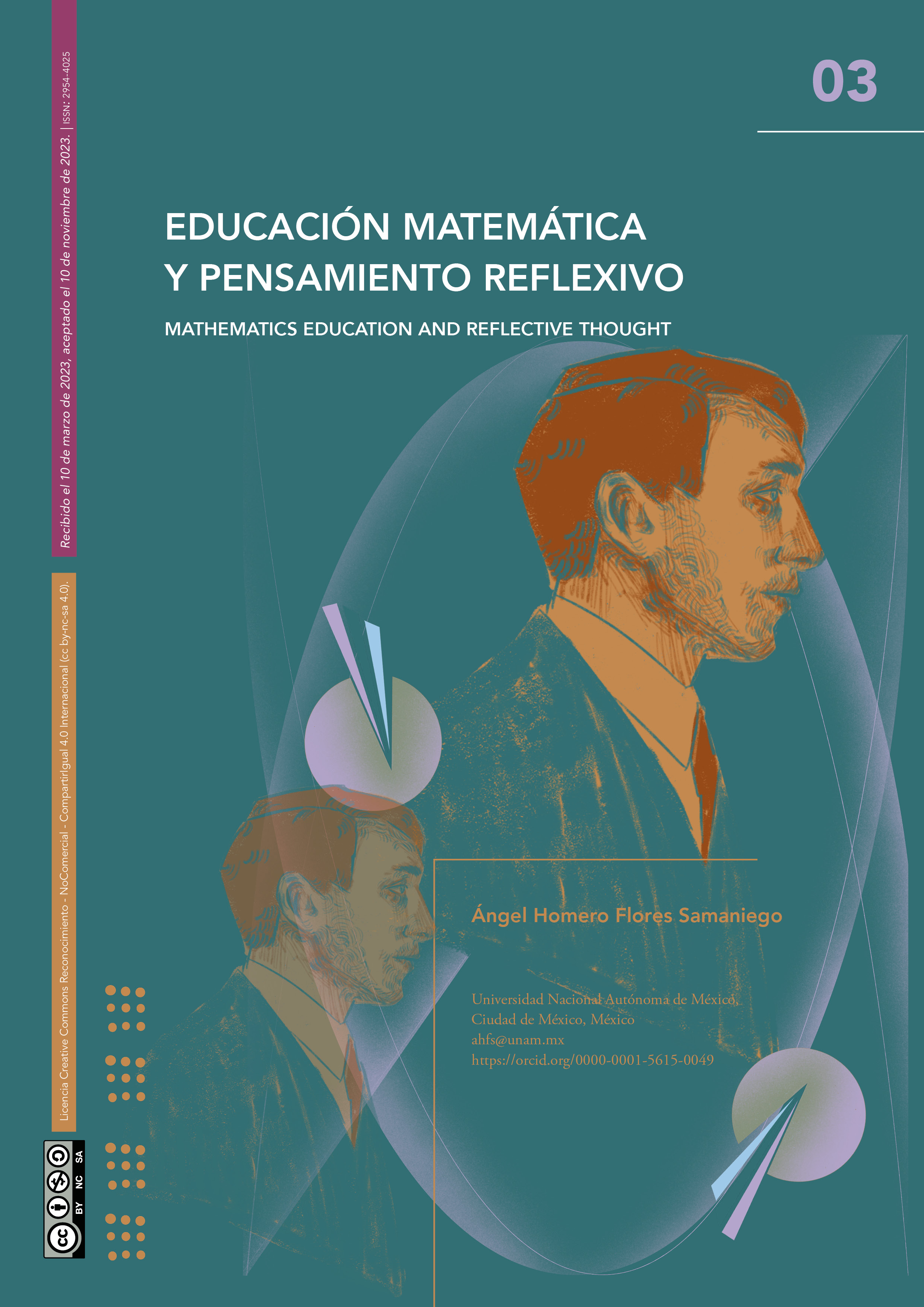Abstract
What are we? Teachers, professors, trainers, educators, masters, instructors? What is our scope of action? Mathematics education, mathematics didactics, mathematics teaching, educational mathematics, mathematics teaching? What role should pedagogy and didactics play in the educational process of students, understood as their insertion into society as citizens who contribute to their development? Can the study of mathematics at school contribute to this process? In this essay we will seek answers to these questions from the Deweyan perspective on reflective thinking and learning. The reflection ends with the approach of the bases of a didactic intervention model in which reflective thinking is encouraged in an environment of tolerance, respect, and cooperation; an environment in which five equally important dimensions are considered: curricular content; cognitive demand; equitable access to content; identity and belonging; and formative feedback. All to simplify didactics and tasks in the classroom.
References
Arteaga, B. y Macías, J. (2016). Didáctica de las Matemáticas en Educación Infantil. España: Universidad Internacional de la Rioja.
Brizuela, P. (2013). La resolución de problemas de reparto a través del trabajo colaborativo. Veracruz, México: Universidad Pedagógica Veracruzana. (Tesis de Maestría.)
Brousseau, G. (1997). Theory of Didactical Situations in Mathematics. Dordrecht: Kluwer.
Cantoral, R. y Farfán, R. M. (2003). Matemática Educativa: una visión de su evolución. Revista Latinoamericana de Matemática Educativa. 6(1), 27-40.
Chevallard, Y. (1985). La transposición didáctica: del saber sabio al saber enseñado. Argentina: Aique.
Dewey, J. (1910). How we think. Estados Unidos de América: D. C. Heath & Co. Publishers.
Engels, F. (1878). La revolución de la ciencia de Eugenio Dühring (Antidüring). Tomado de la edición en español de 2003, Marxist Internet Archive (Recuperado el 2 de febrero de 2019 de https://www.marxists.org/espanol/m-e/1870s/anti-duhring/)
Flores, A. H. (2007). Prácticas Argumentativas y Esquemas de Argumentación en Profesores de Matemáticas del Bachillerato. Educación Matemática, 19(1), 63-98.
Flores, A. H. (2017). Pensamiento Matemático y el Quehacer Científico. Pädi: Revista de proyectos y textos académicos de didáctica de las ciencias y la ingeniería. 1(1), 27-39.
Flores, A. H. y Gómez, A. (2009). Aprender Matemática, Haciendo Matemática: la evaluación en el aula. Educación Matemática, 21(2), 117-142.
Franco, M. A. (2012). Pedagogia e prática docente. Brasil: Cortez Editora.
Gómez, A. (2022). Retroalimentación Formativa en el Aula de Matemática. México: CICATA-IPN. (Tesis doctoral.)
Ibáñez, C. (2007). Un análisis crítico del modelo del triángulo pedagógico: una propuesta alternativa. Revista Mexicana de Investigación Educativa, 12(32), 435-456.
Juárez, F. (2015). Epistemología del aprendizaje, apuntes para una pedagogía persuasiva. México: UPN.
Houssaye, J. (1988). Triangle pédagogique: théorie et pratiques de l'éducation scolaire. Suiza: Editions Peter Lang.
Lakatos, I. (1976). Proofs and Refutations: the logic of mathematical discovery. UK: Cambridge University Press.
Merriam-Webster (1993). Merriam Webster’s Collegiate Dictionary, Estados Unidos de América: Merriam-Webster, Inc.
Nieto, N., Viramontes, J. de D. y López, F. (2009). ¿Qué es matemática educativa? Culcyt/Educación Matemática, 6(35), 16-21.
Peirce, C. S. (2014). Illustrations of the logic of science. Estados Unidos de América: Open Court.
Schoenfeld, A. (2016). An Introduction to the Teaching for Robust Understanding (TRU) Framework. Berkeley: Graduate School of Education, Universidad de California Berkeley. (Recuperado el 30 de junio de 2024 de https://truframework.org/).
SUMEM (2014). Consideraciones para la Mejora de la Educación Matemática en la UNAM. México: Secretaría de Desarrollo Institucional-UNAM.
Vidal, R. (2016). La Didáctica de las Matemáticas y la Teoría de las Situaciones. (Recuperado el 06 de septiembre de 2022 de https://educrea.cl/wp-content/uploads/2016/01/DOC-La-Didactica.pdf).

This work is licensed under a Creative Commons Attribution-NonCommercial-ShareAlike 4.0 International License.
Copyright (c) 2024 PädiUAQ


